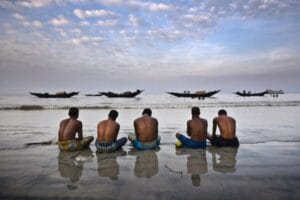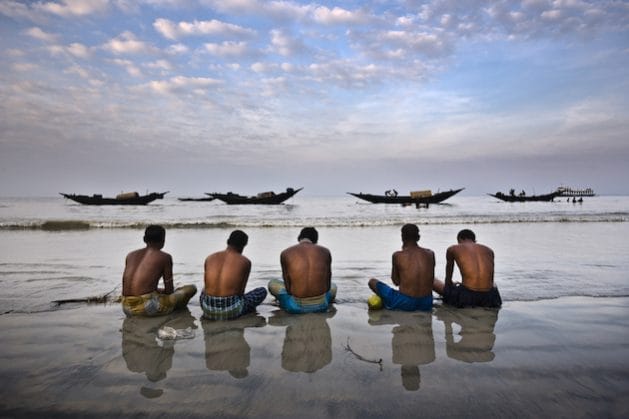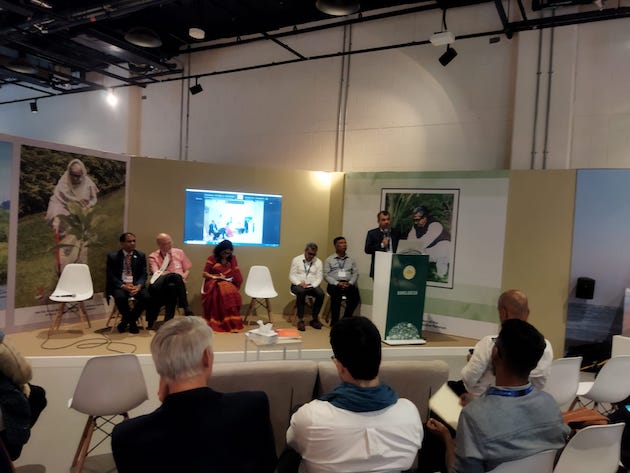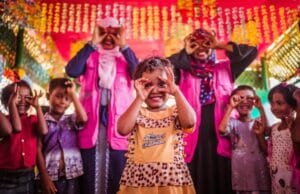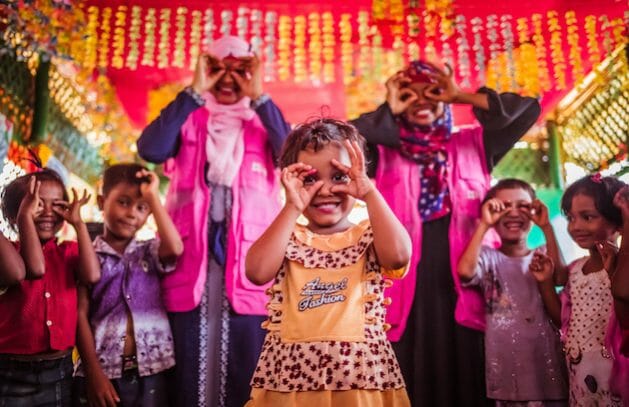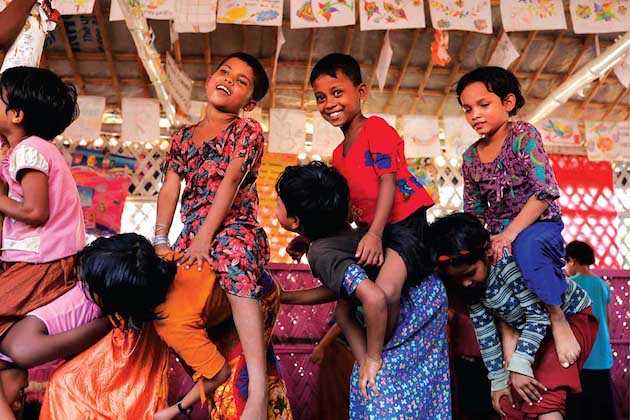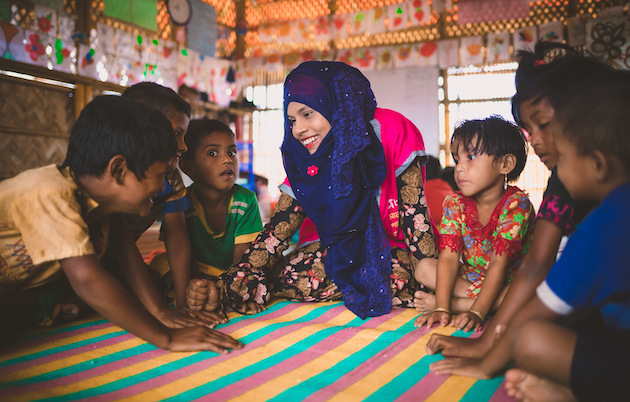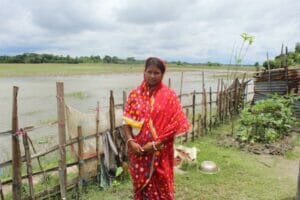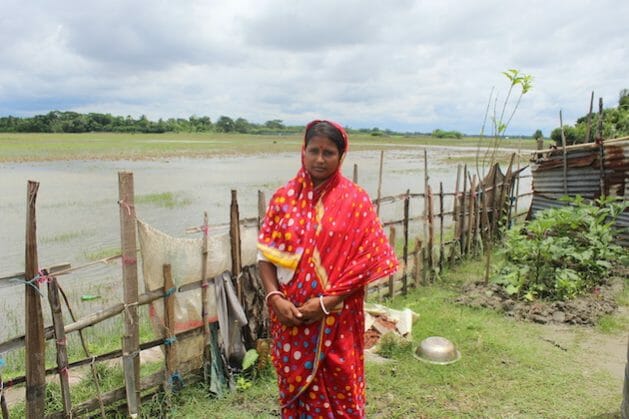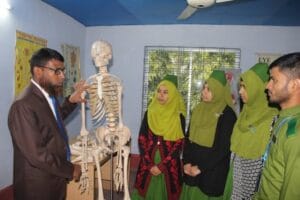
Aid, Asia-Pacific, Civil Society, Development & Aid, Editors’ Choice, Featured, Gender, Headlines, Health, Human Rights, Inequality, Sustainable Development Goals, TerraViva United Nations, Youth
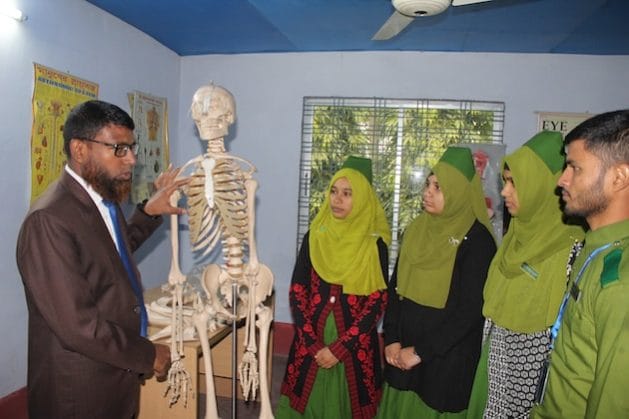
Dr MA Sayed conducts a practical class with his students at the
Moimuna Nursing Institute. Credit: Rafiqul Islam/IPS
– After passing her secondary school certificate (SCC) in 2019, Sweety Akter went door-to-door to collect money to enroll in a college, but she wasn’t successful.
Born to an extremely poor family in Fultala village under Baliadangi upazila in Thakurgaon district, Akter saw her dream of studying fading as she was unable to enroll in a college because of a lack of funding, despite her good results at school.
“I went to many places but did not get the opportunity for admission. I did not have the financial support to study at a private college or an educational institute.”
Then Sweety’s fortune changed.
“I luckily got a chance to study for a nursing diploma free of charge at Moimuna Nursing Institute (MNI),” she told IPS.
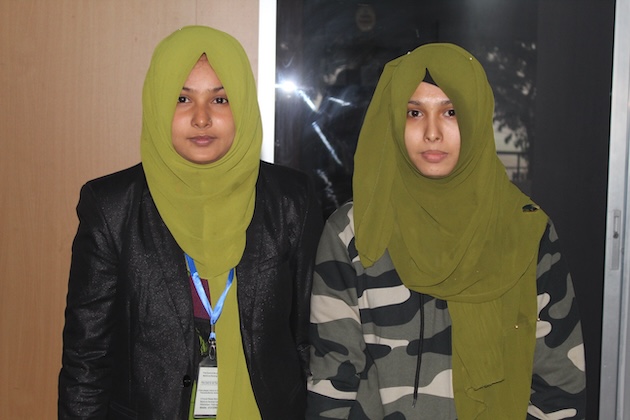
Two sisters, Sweety Akter (left) and Shikha Akter (right), are enrolled in Moimuna Nursing Institute. Sweety has already completed a nursing diploma with financial support from the institute, and Shikha is now a second-year student. Credit: Rafiqul Islam/IPS
Explaining her financial hardships, the 22-year-old Akter said her father is a gambler who had sold all the family’s assets to gamble, and he had even sold their lone homestead, where they are currently living.
“My father does not give me and my younger sister any money for education. My mother works as domestic help at the houses of people and is bearing the costs for our four-member family,” she said.
Sweety said that if she had not had the opportunity to enroll at MNI, it would have been impossible for her to pursue tertiary education, and she would have been forced to marry.
Overcoming all the odds and passing the nursing diploma, she is now pursuing an internship at Rangpur Medical College and Hospital (RMCH) with financial support from the institute, which paves the way for former students to get jobs at hospitals.
Shikha Akhter (19) enrolled in Moimuna Nursing Institute in Thakurgaon, northwest Bangladesh, to pursue a diploma in nursing science and midwifery with the encouragement of her sister, Sweety.
Shikha said she enrolled in the institute at a minimum fee, and now she is enjoying more facilities than other students as her elder sister also studied there.
“I am studying the nursing diploma and staying at the MNI’s hostel, which makes my life easy. I want to be a good nurse and serve people,” she added.
Joya Rani, a 20-year-old girl from poverty-stricken Kaliganj village under Deviganj upazila, also studied the nursing diploma with financial support from the institute.
“My father is physically challenged, so he cannot work. My mother is the only breadwinner for our family, and she supports the family by rearing cattle. That’s why she cannot give me any money (for study),” she told IPS.
Joya, who is currently doing an internship at RMCH, said she received a stipend of Taka 2,000 (USD 19) from the institute over the past two years, and if she had not received the stipend, it would not have been possible for her to continue studying.
Moimuna Nursing Institute, located 460 kilometers away from the capital Dhaka, is a non-profit approved by the Bangladesh Council of Nursing and Midwifery and offers a three-year diploma in nursing for about USD 1,500, which includes tuition fees, accommodation, uniforms, and books.
Thakurgaon is a poor district in Bangladesh, with a poverty rate of 36.7 percent against 18.7 percent at the national level. Of them, about 19.7 percent of people in the district live in extreme poverty, which prevents many from continuing their education, particularly the girls.
Since the start of its journey in 2019–20, the MNI has been providing financial support, including stipends and need-based scholarships, for students coming from underprivileged families.
MNI’s managing director, Dr. MA Sayed, said the institute authorities are providing a handful of scholarships, with three poor students receiving stipends in each batch so that they can continue their nursing education.
In distributing scholarships and stipends, a committee of the institute inspects the houses of their students. If the committee finds evidence of acute financial hardship, the MNI provides support.
Even after completing the nursing diploma, the institute’s support continues, and it facilitates sending the former students to public hospitals to do internships.
“During their internship, we are providing financial support for some selected poor students so that they can accomplish their goals,” Sayed said.
He said the MNI provides a residential facility for its students to ensure a smooth environment for education, resulting in a 100 percent pass rate, which makes it the first in Thakurgaon district.
“We also carry out career counseling for students to encourage them to consider a higher education in nursing,” he added.
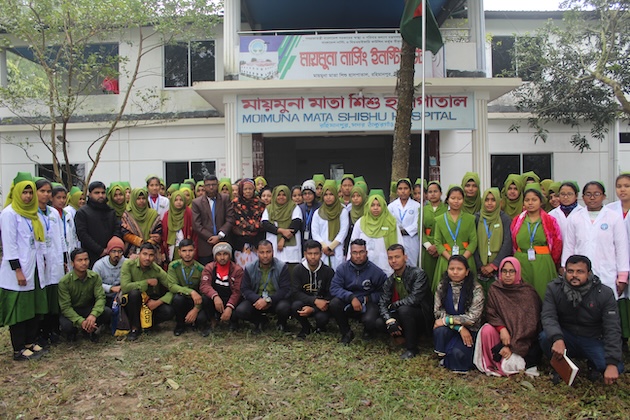
Teachers, students, and staff of Moimuna Nursing Institute pose for a photo in front of its main building on the campus. Credit: Rafiqul Islam/IPS
Nirmola Toppa, mother of Nila Kispotta, who recently completed a nursing diploma from the MNI, said after her daughter passed the SSC examination, she tried to marry her off because she could not afford to pay for her daughter’s educational expenses.
But a scholarship meant Nila could complete her diploma, and she is now getting a stipend of Taka 2,000 (USD19) per month from MNI to complete her six-month internship at RMCH.
Nirmala said Nila received Taka 6,000 (USD 57) to enroll in the internship too.
Founder of Moimuna Nursing Institute, Dr. Saifullah Syed, said in Thakurgaon, many rural underprivileged girls and those coming from minority and ethnic communities pass the entrance exam (SSC) to enroll in nursing institutes but do not enroll due to financial constraints.
Also, there are many who could qualify but do not take the entrance exam, thinking that they may not be able to afford the educational expenses to become nurses and midwives, he said.
“That’s why I founded Moimuna Nursing Institute to ensure that qualified poor rural girls, particularly those coming from minority and ethnic communities, get the opportunity to become nurses and midwives,” Syed told IPS.
He asserted that his institute has established an endowment fund under the control of a Board of Trustees, provides need-based scholarships, and arranges sponsors.
The MNI welcomes donations as it means more students may be assisted.
IPS UN Bureau Report

